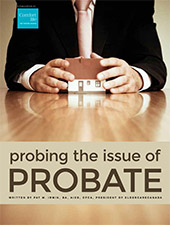The amount that you can expect to pay to live in a senior living retirement community will vary greatly. Most residents of retirement communities pay monthly rent for their accommodations and across Canada, monthly fees range from $1,600 to $6,270 (and higher) on average. This is dependent on the size and location of the accommodations, the type of community, and the quality and number of amenities. When Canadians feel they have exhausted home care and other options, they often find that paying for senior care is, all things considered, more affordable than they might have thought. Take a closer look, using the following tables.
Of course, families and seniors should get in-depth advice from a financial planner before procuring care or looking at moving. Here, though, is a do-it-yourself starter guide that allows you to contrast your current living costs to retirement home fees, discover questions to asks communities about costs, and much more.
On this page
Cost surveys and overviews |
Step by step affordability guide |

Costs in Ontario
Ontario has by far the widest range of costs for retirement homes, including the most affordable and most expensive rates across Canada. Retirement home costs average $3,354 per month. Ontario's retirement homes cover a wide range of specialized needs and forms of care.
Learn more:

Costs in BC
British Columbia follows Ontario in number of retirement homes and range of retirement home costs. Rental prices are a little more affordable at an average of $2,785 per month. British Columbia's retirement homes offer the best of services and amenities. Retirement homes in BC cover a wide range of care needs, so costs vary.
Learn more:

Costs in Alberta
Retirement community rent for seniors in Alberta averages $2,855 per month. What accounts for this price is the fact that in Alberta, residents often receive health care and other amenities in their residences. The variety of care options come with different related costs.
Learn more:

Costs in Manitoba & Saskatchewan
Retirement communities in the prairies provinces offer a number of services and ameneties for seniors. In Manitoba, the average is $2,378 per month. The average in Saskatchewan is $2,505 for a one-bedroom senior space.
Learn more about retirement costs in Manitoba.
Learn more about retirement costs in Saskatchewan

Costs in Quebec
Quebec offers a wide variety of senior housing types. The average rent for a senior space in Quebec is only $1,520 a month. Retirement communities in Quebec offer a vibrant social community as well as the support services that seniors need.
Learn more about retirement costs in Quebec

Costs in Atlantic Canada
As it goes with real estate in general in Atlantic Canada, New Brunswick retirement homes are one of the country's most affordable, with an average rent of $2,137 per month. Seniors live in great comfort in Atlantic Canada and have a variety of options so they can choose the retirement home of their choice.
How Much Does Care Cost?
Fees and prices for senior living communities vary widely. Retirement home costs will change according to the area you live in and the type and intensity of care that is required. Most residents of retirement communities pay monthly rent for their accommodations. Across Canada, monthly fees range from $1,600 to $6,275, depending on the size and location of the accommodations, the type of community, care required and the quality and number of amenities. When planning for retirement it's important to research the costs of the type of retirement community you wish to live in so that you are financially prepared when you are ready to make the move.
There are a number of retirement home options out there for every budget. For example, life leases give seniors a stake in a community but do not involve traditional home ownership. Residents have the right to occupy their unit and use amenities such as dining rooms and recreational facilities. These types of senior communities tend to be sponsored by non-profit organizations and vary greatly in cost depending on location and amenities, but buying into a development tends to be lower than market value.
Average Lowest Monthly Retirement Home Rent Across Canada
Below, find data from cities from across Canada for the lowest price per community, surveyed from our clients in 2023.
| Major city | Avg. Cost |
| Toronto, ON | $4,481 |
| Calgary, AB | $3,671 |
| Vancouver, BC | $4,620 |
| Ottawa, ON | $3,606 |
| Mississauga, ON | $3,948 |
| London | $3,615 |
| North Vancouver | $4,628 |
| Kelowna Area | $2,703 |
| Average in major cities | $3,583 |
Cost by Care Type
In actual fact, the biggest determining factor for the cost of seniors' care is the type of care you require. Suites in independent living are typically counted as the basic retirement home cost that clients will pay. Beyond that, though, if further care is required, fees may be added or the cost may go up.
The cost of assisted living varies from one province to the next and can vary quite widely depending on whether or not you are looking at a care home in a small town or in a larger city. We provide a survey of assisted living costs, and how to pay for assisted living.
Alzheimer's care and memory care, for dementia patients, is one of the most costly types of care. Inevitably, many sufferers of dementia will be admitted into long term care, but there are waiting lists to get into these homes. In the meantime, families may choose to avail themselves of a short term stay in a retirement home. We cover the costs of memory care and how families pay for memory care.
Long term care costs are generally covered by the government, across Canada. If you get into a long term care home, care costs are all covered you will only need to pay for room and board.
How can I afford it?
The average selling price of a Canadian home in February 2023, was $612,204, a drop of 18% from both the previous year and the previous month. While the market is definitely cooling, most boomers are still sitting on more equity than they ever dreamed possible when they started out. Seniors living in major cities who purchased their home in the 1950’s and ‘60’s often have at least a million dollars in equity. If that house is no longer a light burden, sell it, then live it up in a retirement home.
When it comes to looking at the costs of senior living, there are still some who dismiss the idea outright on the superficial basis of cost (or maybe cost combined with prejudice or stubbornness). Take a closer look at how your personal life will improve, but also how easily affordable it is.
Of course, we recommend you get in-depth advice from a professional financial planner before procuring care or looking at moving.
Here, though, is a do-it-yourself starter kit that allows you to contrast your current living costs to retirement home fees, and prompts you to sum up your personal financial assets. Save these sheets in your own personal files.
Further down, we provide questions to consider as you examine your options. It’s all about arming you with all the knowledge you need, so you and your family are empowered to make a decision that’s right for you.
Assess needs and understand your budget
We assume you already know what level of care you’re seeking. While independent living is an option many seniors choose, most people move into a retirement home because of a need for assistance. In some cases, families face a sudden, unaccounted-for need for care. They may have put off thinking about costs, but here is help with that accounting. This will require doing calculations, and afterward, you can file these as you see fit.
As has been outlined throughout this magazine, the social life, the amenities, the daily schedule of activities, and the presence of staff 24/7 are all priceless for both seniors and families. There are still other things to consider as well:
• When you move into a retirement home, a car becomes optional.
• Services included in some retirement communities’ fees often include cable and internet, spa treatments, physiotherapy, and other secondary health care costs.
• Services you can get in a retirement community include things like personal alarm systems, which you would have to pay for in your own home. Finances are important to everyone. But in the case of some retirement homes, you can indeed buy happiness, along with peace of mind for family members.
Can you afford to change your life and that of your loved ones for the better? Can you afford not to?
Calculate your current monthly costs
Use the table below to record all your monthly costs. Many of these costs are covered by basic monthly fees in a retirement community, as listed in our directory.
These calculations are “hard math” in more ways than one. The second calculation you can make tallies up your financial resources to estimate how long your current resources and income will last you after you move into a retirement home. It’s helpful to know!
Download our online retirement calculator here.
Item |
Fill in your own costs |
Property tax |
|
Utilities |
|
General home maintenance |
|
Internet, cell phone service |
|
Groceries |
|
Prescriptions |
|
Liquor |
|
Two cars, gas, insurance |
|
Entertainment, dining, theatre |
|
Clothing |
|
Restaurant meals and other sundry |
|
Housekeeper monthly |
|
Gym membership |
|
TOTALS |
Calculate your resources
Use the calculations below to figure out the duration you can afford in a retirement home. File this away somewhere private and keep these numbers handy as you look at options.
Estimate your net worth, starting with your home’s estimated current market value, minus commissions and outstanding costs. Add other personal investments’ (other real estate, stocks, etc.) estimated value. Subtract all your outstanding debts from this, including credit cards and other debts. This result is the total personal savings you draw down from.
Calculate your monthly income sources by summing up investment income, workplace pension income, Canada Pension Plan payouts, Old Age Security (OAS), and other monthly income. This gives you a total amount you can use toward monthly retirement home fees.
UNDERSTAND COSTS AS YOU NEGOTIATE A MOVE
Let’s look at three basic topics with respect to retirement home costs. To fully understand communities’ fees, we also arm you with questions to ask as you tour options, along with related tips.
Compare your monthly costs total to what you would pay in the retirement home of your choice. See average costs listed above. Note that the chart above is a version of our online retirement calculator.
Retirement Communities: Financial Tips
- Retirement homes across the country offer special discounts for accommodations for a couple or second person living in the same home. This should be taken into account when planning for the retirement of other family members and can be an excellent way to cut costs
- Find costs you can manage based on your specific needs and desired location
- Each combination of location, payments and services results in a different monthly cost
- Personal support and health-care services are generally available for an additional fee
- Ask the retirement community you are interested in for their rates
- The most common types of retirement communities allow residents to continue living independent and active lifestyles. With the least amount of extra care provided by retirement residence staff, the costs of independent living communities and active adult living communities are generally lower priced
- The costs at retirement communities that provide intensive attention to residents, such as Alzheimer's care and long-term care facilities, are slightly higher
The cost of individual retirement home units varies considerably depending on the size of the unit as well as the amenities and features you require. To get all the details, speak to the individual retirement communities and home care services that you're considering. You'll find some of the best profiled here on Comfort Life.
Questions to consider as you tour communities
Many people are surprised by what they can actually afford when they look closely at retirement living. For some, at first, the advertised costs can seem shocking, but the same can be said for many things, when we hold expectations from years ago.
There are also factors that can help free up resources. For one thing, as you get older, there’s less need to save for the future, and it becomes apropos to begin dipping into your retirement nest egg, as long as that is done carefully and wisely. There are conservative, solid ways of investing any leftover equity from your home to give yourself residual income. Some retirement homes can recommend financial planners who will help you optimize your investments.
Getting to the bottom line takes research. It also requires asking the right questions. When you break things down, the same as you would any major real estate purchase, the possibilities become clearer. Of course, we recommend that you talk to a financial advisor, but here is a broad look at important issues.
Determine what level of care you need and what parts of your life are less than satisfactory. Record all your current living costs in a spreadsheet to get the big picture. Make sure to include all your monthly costs as well as yearly costs, like property tax, broken down into monthly chunks.
Armed with an understanding of your current basic needs and monthly budget, you’re ready to look at your options. This is where people are often happily surprised. They’re impressed by how wonderful senior living can be, and amazed by what they can actually afford. But before you get to those pleasant surprises, you need to open yourself up to the potential.
There are three essential topics to consider when investigating senior care:
1. Basic accommodation services and care
At many retirement homes, the listed cost includes three meals a day and snacks. Many communities account for special diet restrictions, which can be accommodated. These include everything from dairy-free requirements to low sodium or gluten-free diets and cultural considerations.
Questions to ask:
Q. What's included in the accommodation charges?
Retirement homes vary widely in the way they structure fees, and there is no standardization. You can consult closely with profiles found on ComfortLife.ca to get a clear picture of what’s included and what’s not. Many communities include laundry and housekeeping as part of basic services. Of course, heat, hydro, and other typical household expenses will be included, but in most homes, cable and internet are not.
Q. What is included in the dining and meal plan and how flexible is it?
Most communities stipulate exactly how dining and meals are structured and of course you will want details on this. But you may want more flexibility or to manage your costs by cooking some meals in your own suite or eating out of the community. On the other hand, select communities offer luxury services like a bistro, pub, or cafe. These are wonderful places to meet with friends and enjoy a drink or a meal together and sit and chat. If this suits your lifestyle, you’ll pay extra for meals and drinks here.
Q. How are my rights protected?
Make sure homes you look at are members in good standing of regulatory bodies. In Ontario, The Retirement Homes Regulatory Authority (RHRA) licenses, inspects, and regulates retirement homes, administering the Retirement Homes Act of 2010. It ensures that residents live in security, safety, and comfort and are able to make informed choices about care options. In British Columbia, The BC Seniors Living Association covers safety measures, staff training, assisted living supports, and other factors, offering a Seal of Approval to communities meeting its standards. In Alberta, you can consult your rights under the Alberta Housing Act. Be sure that you understand all rental laws and rights before you commit.
Q. What move-in incentives are there?
Many communities offer incentives, depending on the time of year. This may include things such as first month rent-free, or free parking for six months.
Be sure to understand rent increases and rental laws before you commit.
2. Care Services
No one can anticipate care needs accurately. You may be moving into independent living because you like the company, but you can’t ignore the possibility that you may require care services later. You may be looking at assisted living because you need one type of care service but it’s possible you’ll need other care in the future. When you sit down with representatives from specific communities, they’ll give you details about the cost structure, so make sure you understand the maximum rate you’ll be paying and how fees are structured. Be sure to understand how firm the rates for extra care services are.
Questions to ask:
Q. What care is included in the advertised costs?
The way care is billed varies widely across the country. In the provinces of Alberta and British Columbia, these extra care services are administered and funded in part by provincial bodies. In Ontario, care plan fees are based on needs and this can be re-evaluated every three to six months.
Q. If specific care services are billed extra, what are the rates for each and every care service? How fixed are those rates?
In some independent living communities, you can pay for care services individually or hire in your own private care. Once you require multiple care services, it may make more fiscal sense to switch to assisted living in some communities, where all care services are covered by one umbrella cost.
Q. If the assisted living community bills an all-inclusive care fee, are you going to use all the health care services included?
Personal health care services include hands-on assistance with dressing, bathing, or feeding. In some assisted living communities, two-person transfers are not available. Incontinence care is often not available in select communities, especially in Ontario.
Medication management is a common reason for families to seek senior care. It’s not available in every community as it puts the onus of responsibility onto the retirement home. As such, you can expect to pay extra for this service.
Nursing care is provided by professional staff. This may include medication as well as assessments and other nursing services. Some residences have nursing staff visiting once per week, while others have registered nurses on-site 24/7.
Medical doctors may be available in some communities, most often on a weekly schedule.
The way these services are billed varies widely across Canada. For example, in Ontario, some basic care services may be included as part of the cost advertised for assisted living. In Alberta and BC, such care services are provided under government programs, independent of the costs listed by retirement communities. Investigate communities and learn how their care fees are structured. Be sure to ask for clear definitions of what is provided with respect to care. You should be certain of exactly what care you are paying for. Ask the retirement home to disclose all care costs, so you know ahead what you might pay for a care service, should the need come up in the future.
Q. What care services do you anticipate in the future and what costs are associated?
To anticipate this, you might think of your own medical history or that of family members.
Health care services put a lot of responsibility in the hands of retirement homes, so if you will need to hire in your own care, confirm that you can do that easily and seamlessly.
If you anticipate needing long-term care at some point in the foreseeable future, be sure to discuss this with the community.
3. Third-party services
Many communities offer a variety of services in-house that might include pharmacy delivery, physiotherapy, hair care, etc. When these services are not provided by the retirement home, you may choose to purchase those from home care providers, as long as the retirement home permits this.
Questions to ask:
Q. If the community has a central pharmacy, are you required to use it?
If you choose to use the medication administration services provided by the community then you have to use their in-house pharmacy due to charting methods. There may also be an additional fee charged for this.
Q. Is the community upfront about costs associated with visiting or in-house health care services?
Many communities advertise services like regular doctor’s visits, physiotherapy or even dentist visits. Provincial health care regulates doctors visits, of course, but other services may be billed directly to the resident by the service provider.
Q. If there are outings, such as trips to the theatre or local attractions, what extra costs will you have to pay?
Some outings are covered by the community’s activity department budget, however you can’t assume all are. Some special events may be billed separately. Make sure you understand how this is handled so you know ahead of time how many of these you can participate in.
DOING THE HARD MATH
It’s best to work through all of your financial concerns with as much help as possible. Almost everyone in retirement communities has “done the math.” That is, they’ve sat down, figured out how much they have in home equity, investments, pension, and other retirement income like that from Canada Pension Plan (CPP) and Old Age Security (OAS). Then they try to forecast how long these resources will last them in their current retirement community.
Read more about how to optimize your income in retirement.




